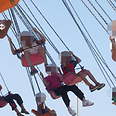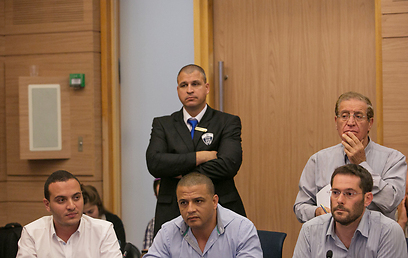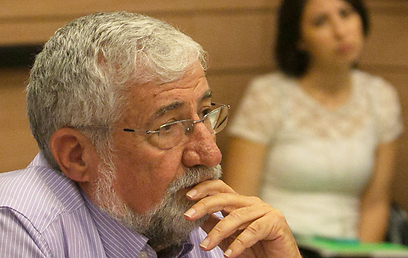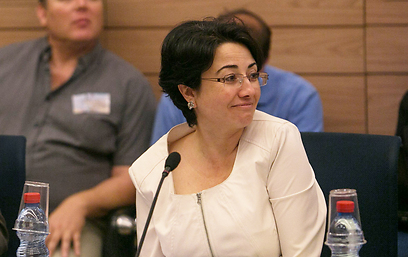
Superland: We have separate days for haredim too
Owners of amusement park accused of discrimination reveal 2-year long policy of sector segregation, say facility aimed to avoid friction between Jewish, Arab youths
Representatives of an Israeli amusement park that were accused of discriminating against Arabs revealed Monday that the facility hosts haredi groups on separate days, as well as Arabs.
The policy was discussed in the Knesset Education, Culture and Sports Committee, together with the discriminated school principal, Superland owners and representatives from the Justice Ministry. "There are days in which haredim want to come alone, Superland is closed to the public on those days," said the park's representative, and apologized to those who were offended by the policy.
Related Stories:
Superland had initially claimed that a separation policy at the park was only practiced when it comes to Jewish and Arab youths.
Last week, a Jaffa high-school teacher asked to buy Superland tickets for his students. According to him, when the operators he spoke with realized the students were from an Arab school, they cancelled the transaction, claiming the requested dates are unavailable.
Following this event, it was revealed that Superland opens its gates on separate days for Jewish and Arab schools.

(Photo: Motti Kimchi)

Superland Rishon Letzion apologizes (Photo: Motti Kimchi)
The amusement park tried to explain that the policy was meant to prevent friction and violence, and that there is no truth to the racism claims.
Superland representative Hani Baruch explained on Monday that the park received requests from different sectors for private days, and that has been the policy for the past two years. "Some sectors want to be alone," she said. "We also have separate days for haredim, and then whoever isn't haredi can't come in, and the park is closed to the public."
Baruch added: "On Saturdays we have families from all sectors, and it is fun and everything is fine. But there's a problem when teenagers come, it's a problematic age and they come to have graduation parties, it is a few days in which Jewish and Arab youths meet for the first time, and it creates some friction."
She further added that "when we realized some people are offended by this, we gave a clear direction to our salesmen to stop the policy." She asked for the forgiveness of those who were hurt: "We apologize to everyone and to the teacher in particular. This is the opportunity to say there is no policy, it was in good faith.
'Racism sells'
Knesset Member Hanin Zoabi (Balad) warned: "If the policy has been practiced for several years already, imagine how many schools did not complain. Everyone thought it was obvious. Hi-tech executives don't hire Arab employees because they didn't serve in the army, Israel Railways oppose Arabic announcements because it makes noise and Arab taxi drivers aren't hired. To be content with Superland's apology would send a message that we are forgiving of racist incidents."

Teachers at Education Committee (Photo: Ohad Zwigenberg)

Committee Chairman Mitzna: malignant disease (Photo: Ohad Zwigenberg)

MK Zoabi (Photo: Ohad Zwigenberg)
MK Jamal Zahalka (Balad) said: "We don't want to segregate, we mustn't segregate. Segregation is forbidden. I have a hypothesis on how this evolved and I think that Superland, as a commercial entity, realized that racism sells. If you offer Jewish school Arab-free rides, they will come."
The principal of the Arab school that was not allowed at the Superland amusement park, Jalal Toche, praised the Knesset's discussion on the matter. "I have no anger or resentment towards Superland, it is a symbol of what is happening in the country." He asked to send a message to his students: "We can't say that because there's a chance that Israeli and Arab youths would clash, there should be separation. I want to educate the youth to meet with Jewish people and live together. We should stop the separation not only in recreation centers."
Khaled, the teacher who was refused entry to Superland, said that the amusement park is "adopting apartheid policies. If the Superland's response is supported, then it legitimizes other public places to segregate as well." He mentioned that following the incident's publication, other amusement sites in Israel have turned to him and invited his students.
Committee Chairman MK Amram Mitzna (Hatnua) said at the beginning the meeting: "I do not need to explain that racism and its side-effects are a malignant and dangerous disease that eventually harms society."
- Receive Ynetnews updates directly to your desktop










